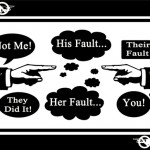 If, three months ago, you failed to carry contractually required insurance for one week, can you cure that breach now? Over the past week, we were thinking about the curability of defaults. And, we weren’t distinguishing between those of landlords or tenants or borrowers or lenders. Our starting point was the common formulation used to define an “Event of Default,” the occurrence of which triggers “consequences.” Here’s an example of the genre: [Read more…]
If, three months ago, you failed to carry contractually required insurance for one week, can you cure that breach now? Over the past week, we were thinking about the curability of defaults. And, we weren’t distinguishing between those of landlords or tenants or borrowers or lenders. Our starting point was the common formulation used to define an “Event of Default,” the occurrence of which triggers “consequences.” Here’s an example of the genre: [Read more…]
You Can’t Cure Them All – Sometimes It Depends On How You Write The Same Obligation
Save Time And Money And Screw Up A Lease’s Co-Tenancy Provision
 We don’t know where to start, but we’ll press ahead anyway. Last week, a November, 2013 federal court decision involving a co-tenancy provision in a shopping center lease was brought to our attention. It is captioned: Kleben Holding Company, LLC v. Ann Taylor Retail, Inc. and can be seen by clicking HERE.
We don’t know where to start, but we’ll press ahead anyway. Last week, a November, 2013 federal court decision involving a co-tenancy provision in a shopping center lease was brought to our attention. It is captioned: Kleben Holding Company, LLC v. Ann Taylor Retail, Inc. and can be seen by clicking HERE.
At the outset, readers should note that the court’s decision was in the form of a “summary judgment.” For readers who don’t know, this means the court believed there were no disputed facts. In this case, there was no trial. The parties conducted their own investigations and the court thought, based on what was presented to it, that all the facts it needed for its decision were in front of the court and that there was no legitimate dispute about them. Although this procedural device is available throughout our court system, it isn’t often applied, especially by state courts. Federal courts, as is the case with this decision, are more willing to dispose of matters by summary judgment. Whatever be the situation with this dispute, on the face of it, the facts were pretty well set. [Read more…]
PrintLandlords (Tenants), You Lie In Wait At Your Own Risk
 We came across a recent Texas Court of Appeals Memorandum Decision validating a “double rent” holdover lease provision. It held that the “doubling” was a contractually agreed-upon rent, and not an unenforceable penalty as the tenant had argued. If the light from this candle we’re using tonight holds up, we’ll return to that central holding of the case.
We came across a recent Texas Court of Appeals Memorandum Decision validating a “double rent” holdover lease provision. It held that the “doubling” was a contractually agreed-upon rent, and not an unenforceable penalty as the tenant had argued. If the light from this candle we’re using tonight holds up, we’ll return to that central holding of the case.
The nice thing about the court’s June 28, 2013 opinion in Khan v. Meknojiya, 03-11-00580-CV (Tex. Ct. App. 3rd Dist. 2013) [a copy of which can be seen by clicking HERE], is that the facts aren’t very explicit. Why, then, do we say “the nice thing”? That’s because it allows us to make them up. And, when we do so, you can’t say we’ve gotten them wrong because, by definition, they are right. Nonetheless, we’ll try to stick our own “story” inside what you’d see in the court’s opinion if you were to look at it. [Read more…]
PrintCan You Waive Your Right To Waive Your Rights In A Lease Or Other Contract?
 Last week, in dissecting the most commonly found style of lease audit clause, and not so favorably at that, we necessarily dragged in what a particular court thought about a landlord’s argument that its tenant had “waived” its right to get a refund of moneys already paid. To refresh your memory, and to implant a new memory into those who haven’t yet read last week’s posting, Ruminations postulated that lease audit clauses, as commonly written, are thought to result in outcomes that never come out. That’s even truer for “no-waiver” clauses in leases and other contracts and even for the defense of “waiver” built into the law. [Read more…]
Last week, in dissecting the most commonly found style of lease audit clause, and not so favorably at that, we necessarily dragged in what a particular court thought about a landlord’s argument that its tenant had “waived” its right to get a refund of moneys already paid. To refresh your memory, and to implant a new memory into those who haven’t yet read last week’s posting, Ruminations postulated that lease audit clauses, as commonly written, are thought to result in outcomes that never come out. That’s even truer for “no-waiver” clauses in leases and other contracts and even for the defense of “waiver” built into the law. [Read more…]
In A Lease, If I Didn’t Do It And You Didn’t Do It: Who Should Suffer The Loss?
 Stuff happens. Ask Bill Nye or David Hare.
Stuff happens. Ask Bill Nye or David Hare.
And, in modern America, it seems as if someone else is always at fault, not me. [If you take no blame, it must be them; Who must then pay my fines. It’s really is quite the cleverest ploy; By which illogic shines. – Gary Bachlund.]
Actually, there are times when bad things happen and the landlord and its tenant are each “good people.” Here are some examples: [Read more…]
PrintWhat Is A Landlord’s Duty To Deliver Possession Of The Leased Space?
 Interestingly, and probably not known by many, there are two very different possible legal obligations of a landlord to deliver the leased premises to its tenant. Some jurisdictions require delivery free of occupants and free of other persons entitled to possession of the same leased premises. Other jurisdictions only require that the landlord deliver the “right of possession” to a tenant, leaving it up to the tenant to get rid of any trespassers.
Interestingly, and probably not known by many, there are two very different possible legal obligations of a landlord to deliver the leased premises to its tenant. Some jurisdictions require delivery free of occupants and free of other persons entitled to possession of the same leased premises. Other jurisdictions only require that the landlord deliver the “right of possession” to a tenant, leaving it up to the tenant to get rid of any trespassers.
This doesn’t come up very often in commercial leases because almost all of those leases define what constitutes delivery of the leased premises. The smart leases require that the leased premises be delivered free and clear of all occupants and tenancies. Those leases that don’t say that or something like that should be corrected.
Consequently, the real “play” in lease negotiations over delivery issues is “by when,” and what happens, “if not.” [Read more…]
PrintHow Do You Enforce Your Lease Or Other Contract? (Remedies – Part 2)
 Two weeks ago (August 5), we began a four part “schmooze” about the kinds of remedies a non-breaching party might have against a breaching party. If you missed it, click HERE. The reason we did so is implicit in the very next paragraph, lifted right out of how we started on August 5.
Two weeks ago (August 5), we began a four part “schmooze” about the kinds of remedies a non-breaching party might have against a breaching party. If you missed it, click HERE. The reason we did so is implicit in the very next paragraph, lifted right out of how we started on August 5.
Having contract rights is “pretty neat,” but without any remedy if those rights aren’t fulfilled, they are just empty promises. So, when the other party breaches your agreement and doesn’t deliver what you bargained for and you can’t “work it out” between the two of you, you’ve got to “ask the judge (or an arbitrator, if that’s what you’ve agreed to do)” to step in and give you a remedy for this breach. In such a case, what can you expect?
Given that we referred to them several times in the first installment, it’s time to ask: How about “Consequential” damages? What are they? After all, aren’t all of the damages being claimed the “consequence” of the alleged breach? Wish that life was that easy. [Read more…]
PrintWithout a Remedy, Your Lease or Other Contract May Mean Nothing!
Having contract rights is “pretty neat,” but without any remedy if those rights aren’t fulfilled, they are just empty promises. So, when the other party breaches your agreement and doesn’t deliver what you bargained for and you can’t “work it out” between the two of you, you’ve got to “ask the judge (or an arbitrator, if that’s what you’ve agreed to do)” to step in and give you a remedy for this breach. In such a case, what can you expect? [Read more…]
Print

Recent Comments